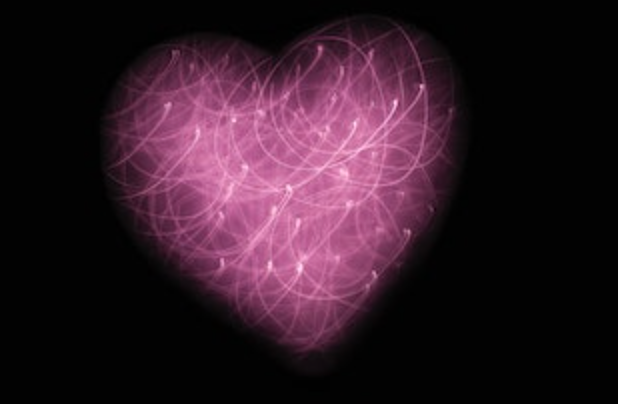The best art evokes an emotional response. This is true not just of paintings and artistic performances but also of great architecture and design.
Perhaps more interestingly, the production of art delivers an even more powerful emotional experience than its consumption. It is far more gratifying to be the artist, than to be his audience.
Even if the artist is incredibly depressed and chooses to express his sadness through his art, the act of creative expression (or creation) is deeply fulfilling because in this creation, he embodies his emotion.
I was looking at old buildings and monuments recently, and I was struck by how ornate and intricate these constructions are.
No matter where we look, the aesthetic of the old world appears so much more elaborate and decorative than the world we inhabit today. It speaks of a time in the world when time itself was not a scarce commodity. When care and attention to detail were not just agents of monetary value, but expressions of reverence and devotion. I imagine scores of craftspeople working with sacred focus for long hours. Not mechanically, but with a motivation that today would feel otherworldly.
Virtually everything our ancients made, was imbued with art. There appears to have been less of a separation between the act of production and emotional expression, than there is today. They didn’t just work with their hands, they worked with their hearts. And there is something to be said for the value of this in human experience
This thought brought me rudely back to my office desk.
How many of us can truly say that we go into work every day and feel emotionally invested in what we are producing? How many of us genuinely love our jobs? If we were to treat all of our work like art, would our work be efficient? Does the modern imagination of work and time really allow for creativity?
It is true that many of us love what we do, but these are typically the lucky few, operating very close to the finished product.
One need look no further than Karl Marx’s Economic and Philosophic Manuscripts of 1844, and his Theory of Alienation to understand why we work so differently from our ancestors.
Modern science has moved us away from reverence and brought us to reasoning. Science has moved the act of creation from the joy of craft to the tedium of production.
The demands of mass production systematically distance the producer from the finished product. Production at scale, drives an efficiency focused approach to production, and the act of production is divided across many workers, with speed and repetition becoming dominant characteristics of the manufacturing process In this imagination, time becomes money. And love, care and attention to detail need to be templated in order to maximize profit.
The worker is taught to work efficiently rather than passionately.
The result has been an entirely new aesthetic imagination of our world. Form now follows function. In many cases, form is function (minimalism being a case in point).
In this efficiency paradigm, work becomes increasingly separated from art, creativity and emotion. As production becomes more sophisticated and complex, more and more of us focus on producing ever smaller parts of a thing. Our creation is but a tiny cog in a huge machine. And our attachment to our work is fleeting at best, because we don’t have the time to stop and marvel. More production and deadlines await.
In his book Sapiens, Yuval Noah Harare astutely observed that the purpose of technological sophistication was to increase convenience and efficiency, which in turn, were to create more free time for humanity to enjoy. But instead, the time freed up is now used to produce even more.
It appears that we are enslaved to a finite imagination of time and a productivity seeking imagination of work. There is little place for creativity and emotion here.
But what about startups? And what about all the innovation happening in Silicon Valley and other millennial hotbeds? Does this not suggest that innovation and creativity are alive and well?
I would argue that the majority of modern innovation is incremental rather than disruptive. I say this because the majority of modern innovation operates within the confines of a productivity framing of time and work. Most car companies today are entrenched in the process of trying to make cars better for commuting. Few are contemplating delivering us from the commute!
New technological and service innovations tend to radically improve efficiency and convenience. As Harare points out, most innovations eventually make us more productive.
So, are we then consigned to a destiny of hyper efficient but relatively soul-less productive work?
I hope not.
In the short term, we humans will achieve inhuman levels of productive efficiency. Work stress will peak. We will be surgically attached to our screens. Even as this is taking place, artificial intelligence will begin to occupy increasingly complex repetitive production tasks. Many of us will lose jobs. Things will get worse before they get better.
Humanity is nothing if not adaptive. And I believe that we will learn new skills and move beyond competing against or replicating the work of the robots.
My hope for the future is that productive work (and its various efficiency seeking complexities) will become the domain of artificial intelligence. And then, just maybe, we humans will rediscover old time and craft. Innovation can also free itself of this pervasive need to save time and energy. Will we then unshackle the pace of our progress as a species?
With the act of production handed over to the machines, maybe we can get back to being creative. Maybe we can create in entirety rather than in parts. Maybe we can again approach the act of work with an artful and emotionally invested energy.
If work became more of an outlet for emotional expression, I’m certain that we’d be a lot happier and a lot less stressed.






